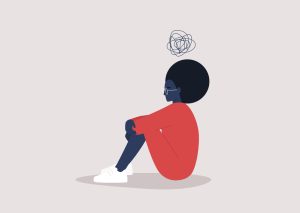While ADHD is a label that is thrown on children sometimes as merely a term for unruly children, the fact remains, it exists in a large enough population that it needs to be seriously examined. Parents are the first guard of their children and they can watch for a multitude of behavioral issues, ADHD symptoms included. If a child consistently displays certain traits over a period of time that matches ADHD behaviors, then it may be wise to have one’s child examined for possible ADHD diagnosis. Licensed professionals as well as ADHD Consultants can help in this process.

The obvious symptoms are inattention, hyperactive, lack of focus, extra energy, impulsiveness and within school and home an inability to complete tasks, sitting still and controlling impulses. While it is possible there is not an issue, if multiple symptoms exist and the child struggles at school and home, it may be important to find professional help. The article, “How to Deal With ADHD: A Guide for Parents” by Ugo Uche looks closer at what parents can expect and most importantly how they can work better with their child. The article states,
“If you have a child with ADHD, you’re not alone. According to the federal Centers for Disease Control and Prevention (CDC), nearly 10 percent of school-aged children have been diagnosed with the condition. While there are many different ways to manage ADHD, it can still be challenging for parents. There are so many things to think about and keep track of, and it seems like no matter what you do, your child is always acting out or getting into trouble. It’s hard to know where to turn for help. This post includes the information you need to start understanding the challenges facing your child and how to help them thrive.”
“How to Deal With ADHD: A Guide for Parents”. Ugo Uche. March 22nd, 2023. Psychology Today.
To read the entire article, please click here
Commentary
ADHD, or Attention Deficit Hyperactivity Disorder, is a neurodevelopmental disorder that affects a child’s ability to concentrate, control their impulses, and manage their energy levels. The symptoms of ADHD can manifest differently in each child, but they typically fall into three categories: inattention, hyperactivity, and impulsivity.
A child with ADHD may have difficulty focusing on tasks or completing them, forgetfulness, and being easily distracted. They may also exhibit hyperactive behavior, such as fidgeting, constantly moving, and talking excessively. Impulsivity can also be a characteristic of ADHD, where a child may act without thinking, interrupt others, and have difficulty waiting their turn.
It is essential to understand that ADHD is not a result of poor parenting, but rather a complex neurological disorder. There is no known cure for ADHD, but with the right treatment and support, children with ADHD can learn to manage their symptoms and lead fulfilling lives.
Signs and Symptoms of ADHD in Children

ADHD can be challenging to diagnose, as many of the symptoms can be attributed to typical childhood behavior. However, parents should look out for the following signs and symptoms:
- Inattention: difficulty focusing on tasks, forgetfulness, easily distracted, poor organization skills
- Hyperactivity: fidgeting, restlessness, talking excessively, constantly moving
- Impulsivity: interrupting others, difficulty waiting their turn, acting without thinking
If a parent notices these symptoms in their child, they should consult with a healthcare professional to determine if their child has ADHD.
Diagnosis and Treatment Options for ADHD
Diagnosing ADHD involves a comprehensive evaluation of a child’s behavior and symptoms. A healthcare professional may conduct interviews with the child, parents, and teachers, and assess cognitive and behavioral functioning. Once diagnosed, the healthcare professional will work with the parents to develop a treatment plan tailored to the child’s needs.
Treatment for ADHD may include medication, behavioral therapy, or a combination of both. Medication can help manage symptoms of ADHD, such as inattention and hyperactivity. Behavioral therapy can teach children with ADHD how to manage their behavior and improve social skills. Parenting strategies also play a significant role in managing ADHD symptoms.
Parenting Strategies for Children with ADHD
Parenting a child with ADHD requires patience, understanding, and a willingness to learn. Below are some parenting strategies that can help children with ADHD:
- Establish routines: Children with ADHD benefit from structured routines and schedules. Create a daily routine that includes time for homework, play, and rest.
- Set clear expectations: Children with ADHD need clear and concise instructions. Use positive reinforcement to encourage good behavior.
- Break tasks into manageable steps: Large tasks can be overwhelming for children with ADHD. Break them down into smaller, achievable steps.
- Use visual aids: Visual aids, such as charts and checklists, can help children with ADHD stay on task and remember what they need to do.
- Encourage physical activity: Regular physical activity can help children with ADHD manage their energy levels and improve focus.
Creating a Supportive Home Environment
A supportive home environment can help children with ADHD manage their symptoms and thrive. Here are some ways parents can create a supportive home environment for their child:
- Minimize distractions: Children with ADHD can be easily distracted. Create a quiet and organized space for homework and other tasks.
- Provide healthy meals: A healthy diet can help children with ADHD manage their symptoms. Provide nutritious meals and snacks.
- Encourage sleep: Getting enough sleep is crucial for children with ADHD. Establish a bedtime routine and limit screen time before bed.
- Stay organized: Help your child stay organized by creating a system for their belongings and schoolwork.
Discipline and Behavior Management for Children with ADHD
Disciplining a child with ADHD can be challenging, as they may have difficulty controlling their behavior. Here are some tips for disciplining a child with ADHD:
- Use positive reinforcement: Reward good behavior with praise or small incentives.
- Be consistent: Children with ADHD need consistency and clear consequences for their actions.
- Avoid physical punishment: Physical punishment can be harmful and ineffective for children with ADHD.
Helping Your Child Succeed in School

Children with ADHD may struggle in school due to their difficulty focusing and completing tasks. Here are some ways parents can help their child succeed in school:
- Communicate with teachers: Keep open communication with your child’s teachers to ensure they are receiving the support they need.
- Help with homework: Assist your child with homework and break down tasks into manageable steps.
- Advocate for your child: Speak with school officials to ensure your child is receiving appropriate accommodations, such as extra time on tests.
Coping with the Challenges of Parenting a Child with ADHD
Parenting a child with ADHD can be challenging and stressful at times. Here are some ways parents can cope with these challenges:
- Seek support: Join a support group for parents of children with ADHD or seek counseling.
- Take care of yourself: Self-care is essential for managing stress. Make time for activities you enjoy and prioritize your own well-being.
- Celebrate successes: Celebrate your child’s successes, no matter how small they may seem.
Resources and Support for Parents of Children with ADHD
There are numerous resources and support available for parents of children with ADHD. Here are some resources to consider:
- CHADD (Children and Adults with Attention-Deficit/Hyperactivity Disorder): a national nonprofit organization providing education, advocacy, and support for individuals with ADHD.
- National Institute of Mental Health: a government organization providing information and research on mental health conditions, including ADHD.
- Understood: a nonprofit organization providing resources and support for parents of children with learning and attention issues.
Conclusion: Hope for the Future

Parenting a child with ADHD can be challenging, but with the right strategies and support, children with ADHD can thrive. It is essential to understand that ADHD is not a result of poor parenting, and there is no known cure for ADHD. However, with early diagnosis and appropriate treatment, children with ADHD can learn to manage their symptoms and lead fulfilling lives. By creating a supportive home environment, using positive reinforcement, and seeking support, parents can help their children with ADHD reach their full potential.
Parents can also work with ADHD Consulting Specialists who can aid them with various coping strategies. ADHD Consultants can be individuals with a deeper understanding about ADHD but are also professionals in health and mental health care. Not all are licensed counselors but many licensed counselors also receive additional certifications in ADHD Consulting if their practice is heavy on helping individuals with ADHD. AIHCP offers a certification for qualified professionals in ADHD Consulting. The program is online and independent study and open to qualified professionals seeking a four year certification as an ADHD Consultant.
Additional Resources
“ADHD in Teens”. WebMD Contributors. June 14th, 2021. WebMD. Access here
“Parenting a Child With ADHD”. Reviewed by: Shirin Hasan, MD. May of 2022. Nemour’s KidsHealth. Acess here
“A Survival Guide for Parents with ADHD: Strategies from Preschool to High School”. David Anderson. December 5th, 2022. ADDittude. Access here
“Parenting a Child with ADHD”. Psychology Today Staff. Psychology Today. Access here
